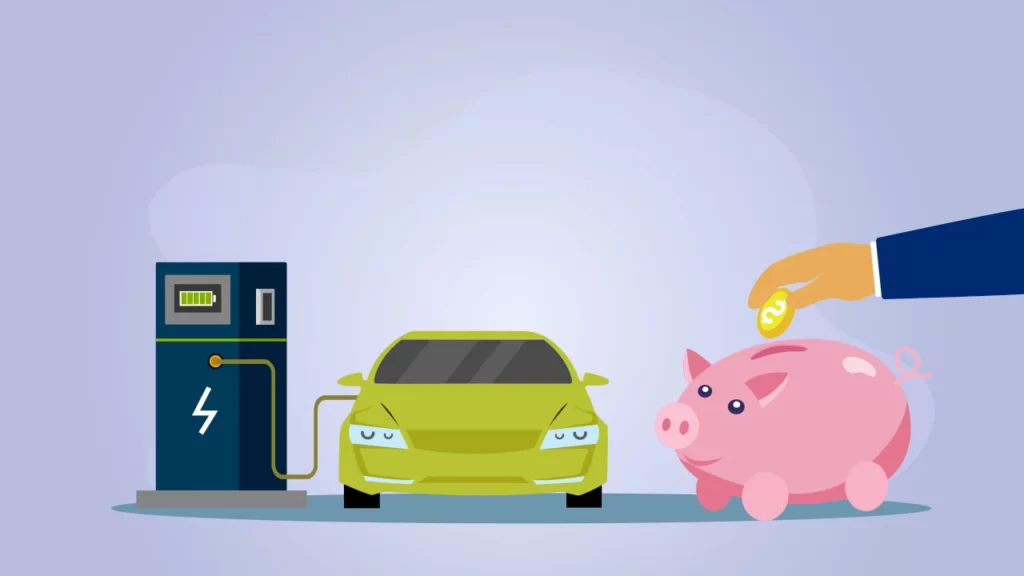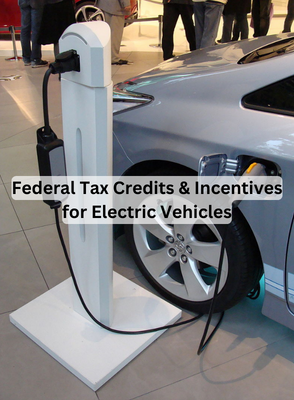Purchasing an electric vehicle allows drivers to save money on fuel costs while also reducing their carbon footprint. However, the upfront sticker prices of EVs are still higher on average than comparable gas-powered models.
Luckily, federal and state/local governments currently offer various tax credit, rebate, and incentive programs designed specifically to make electric vehicles more affordable.
This guide will explore the key details and qualifying factors to leverage available credits and perks when buying or leasing an EV in 2023.
Federal Electric Vehicle Tax Credit
The federal electric vehicle tax credit is the most valuable incentive program – allowing qualifying filers to reduce their tax bill by up to $7,500 for purchasing an eligible EV or PHEV. Here are the key details of this hugely popular program:
Overview
- Up to $7,500 credit amount
- Applies only to new vehicle purchases, not leases
- Reduces potential federal tax owed dollar-for-dollar
- No income cap; all filers eligible if vehicle qualifies
This incentive allows households to deduct up to $7,500 directly from their total federal tax bill for the year they purchase the qualifying EV. It does not come as an upfront payment when buying the car.
The full $7,500 amount applies for new all-electric and plug-in hybrid EVs below certain manufacturer sales thresholds which we’ll outline shortly. Once an auto brand hits the threshold, the available credit begins phase-out reductions over the next year.
Eligible Electric Vehicles
The vast majority of fully electric and plug-in hybrid models from major automakers currently qualify for either the full $7,500 tax credit or partial if the brand has started phase-outs.
The IRS provides full lists of eligible vehicles which are updated regularly as new models arrive to market. Generally though, the credit applies to electric vehicles with battery capacities of at least 5 kilowatt-hours from brands who have not yet hit the phase-out threshold.
Credit Phase-Out Thresholds
The federal tax credit was designed to incentivize auto manufacturers to expand EV product lines and scale production. So once an automaker sells over 200,000 combined electric cars and plug-in hybrids domestically, a 15 month phase-out of the tax credit begins.
Here is the current phase-out status of the major electric vehicle brands in America:
| Automaker | Phase-Out Status | Max Credit |
| Tesla | Yes, fully phased out as of start of 2023 | $0 |
| General Motors | Yes, will fully phase out Q1 2023 | $3,750 |
| Toyota | Yes, began phase out October 2022 | $3,812 |
| Ford | Not yet started | $7,500 |
| Volkswagen | Not yet started | $7,500 |
| Hyundai/Kia | Not yet started | $7,500 |
Tesla and Chevrolet have fully exhausted the 200k limit on eligible sales. Most Toyota and GMC plug-in models also see reduced credits now while others still qualify for maximum amounts during the phase-down period which concludes March 31, 2023.
Meanwhile, Ford, Volkswagen, Hyundai-Kia, and other brands accelerating their electric vehicle product lines have not yet started phase-outs, so still offer full $7,500 credits.
When considering qualifying vehicles, be sure to verify not just the brand but the specific model’s eligibility. For brands phasing out credits, newly launched EV model lines may reboot at full credit amounts briefly before also beginning reductions.

How To Claim the Credit?
The federal EV tax credit does not apply at the time of purchase. Instead, filers must claim the credit on their annual IRS tax return following the year they acquired the eligible electric vehicle.
On Form 8936 submitted with your taxes, calculate the specific credit value based on the acquired EV model’s capacity and phase-out status. This amount will reduce your total income tax bill dollar for dollar.
If the income tax owed for the year is less than $7,500, the outstanding credit amount rolls over to apply against taxes filed the following year.
Key Tip: If eligible for the full $7,500 credit, consider adjusting W4 withholdings to lower each paycheck’s taxes withheld and leverage the new EV credit next April to maximize cash flow help through the year.
State & Local Electric Vehicle Incentives
In addition to the major federal tax credit program, many US states, cities, and utility companies also offer financial incentives, rebates, tax credits, perks and fee exemptions for purchasing an EV.
Benefits can include:
- State tax credits up to $2,000
- Vehicle purchase rebates ranging $500 – $2,000
- Reduced EV registration/licensing fees saving ~$100-200/yr
- EV charging equipment rebates up to $1,000
- High-occupancy vehicle (HOV) lane access
In total, state & local EV incentives can provide thousands in additional savings stacked on top of the federal tax credit depending on your location.
Here are some of the most lucrative state & utility EV incentive programs nationwide:
California
- Up to $2,000 via Clean Vehicle Rebate
- HOV lane exemptions
- Charging equipment rebates up to $1,000
New York
- Up to $2,000 via Drive Clean Rebates
- No registration or inspection fees for EVs
New Jersey
- No sales tax on EVs saving ~$2,000
- HOV access
Colorado
- $2,500 tax credit for purchase/lease
- Various charging station grants
Massachusetts
- Up to $2,500 via MOR-EV program
- HOV lane access
Florida
- Various utility charging rebates
- Annual registration fee waived (~$200/yr)
Check for programs available in your state, county, or city when shopping for an electric vehicle. Your local utility company may also offer special rates or rebates for EV owners or charging equipment installation.
Combined with the federal tax credit, you can unlock thousands in total discounts to reduce the upfront purchase price of a new electric car or SUV.
Electric Vehicle Charging Access & Credits
Expanding charging infrastructure is crucial to increased EV adoption. Alongside vehicle purchase incentives, states and utilities are accelerating the rollout of public charging stations and offering home installation rebates.
Federal legislation like the Bipartisan Infrastructure Law and Inflation Reduction Act have directed billions towards charging network investment over the next decade including $5B just for states to build out chargers on public highways.
For at-home charging, a federal tax credit covers 25% of costs up to $1,000 for installing a qualifying smart charger. Some utilities offer their own additional rebates on top potentially covering 50%+ of home installation costs.
Many hotels chains, restaurants, retailers, and employers are also now offering EV charging access privileges or discounted charging rates to incentivize electric vehicle drivers to visit their locations.
Accelerating both public charging and privileged destination charging availability will continue lowering barriers to EV ownership for more households.
Electric Vehicle Affordability Outlook
Between an expanding list of qualifying electric models combined with federal tax credits of up to $7,500 plus state & utility incentives in many areas, there has never been more financial motivation to choose an EV over gas-powered vehicle options.
However, as more automakers begin to phase down or out of tax credit eligibility over the next 3-5 years, purchase affordability may shift until EV production costs and unsubsidized sticker prices reach greater parity with ICE vehicles, which most forecasts predict happening by 2025-2027.
For now, savvy consumers can stack purchase and operating discounts to access electric vehicles more affordably than ever. Just be sure to research available credits and explore multiple quotes to maximize your savings potential when buying or leasing an EV.


Leave a Reply